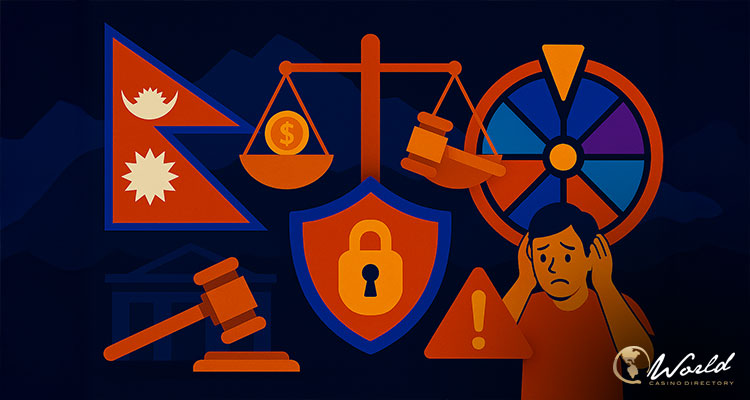Nepal’s government has introduced a sweeping set of reforms through a proposed casino law that would alter how gaming establishments operate, fund, and partner with foreign entities in Nepal. These changes, embedded in the Integrated Tourism Bill currently under review in Parliament, aim to regulate the rapidly growing casino sector more tightly. However, some operators argue that the changes may discourage international investment rather than attract it.
Location rules, licensing changes, and industry pushback:
A key feature of the proposed legislation is a significant reduction in the cap on foreign direct investment (FDI). While existing rules permit foreign investors to hold up to 90% ownership in casino operations, the new bill proposes slashing that figure to just 49%. The rest of the equity must remain with domestic partners. This shift is raising eyebrows within the investment community, with concerns that the change could stifle interest from global casino brands.
Beyond ownership restrictions, the bill revisits the contentious issue of casino placement relative to international borders. A 2019 amendment had reduced the required distance from five kilometers to three, allowing casinos to be built closer to borders to accommodate growing tourism from India and Bangladesh. The new bill proposes restoring the five-kilometer rule but includes a grandfather clause for establishments already operating within the previously allowed zone.
This reversal has sparked frustration among operators and developers. As The Kathmandu Post reports, Chandra Prakash Shrestha, president of the Siddhartha Hotel Association and owner of Nansc Hotel in Bhairahawa, criticized the inconsistent regulations, saying, “The gaming industry is a major taxpayer and it should not be saddled with arbitrary location-based rules. Hotels near border areas were developed to cater to Indian and Bangladeshi tourists and there should not be restrictions in doing so.”
The revised law would also dissolve previous allowances for light casinos in five-star hotels and electronic gaming venues in four-star properties. Instead, all casinos must be operated through separate legal entities that partner with hotels or resorts. These casino firms must apply for a license from the Department of Tourism, which reviews the agreements and supporting documents before issuing operational approvals.
Stricter oversight and compliance mandates:
Other notable aspects of the bill include a mandatory 10% ownership stake in casinos by host hotels or resorts. This measure was introduced to promote accountability in the wake of past financial defaults, where casino operators evaded taxes and royalty payments. The Office of the Auditor General reported that while the government collected Rs1.69 billion in royalties in the last fiscal year, five casinos—three of them operating illegally—still owe Rs1.78 billion.
To ensure financial transparency, all licensed operators must maintain thorough records of player activity, financial transactions, and shareholdings. Licenses will remain valid until mid-July of each fiscal year and must be renewed annually. Operators failing to pay required taxes or meet regulatory standards could face immediate shutdowns and legal proceedings.
If a hotel loses its star rating due to suspension, downgrade, or inactivity exceeding three months, the associated casino license will not be eligible for renewal. Moreover, casinos seeking relocation or new partnerships must obtain fresh approvals from the tourism authority.
The new framework further bans casino operations in areas of religious or cultural significance and prohibits transferring or subleasing licenses. It also imposes a ceiling on the number of locations a company may operate under a single license, reduced from ten in the past to just one by mid-July 2025.
Companies that currently exceed the new ownership limits or operate multiple casinos will need to restructure within one year of the bill’s enactment. All foreign joint ventures must be formally approved by the Department of Tourism and the Cabinet.
Additionally, the bill includes a social responsibility clause requiring licensed casinos to contribute at least 2% of annual profits to social development areas such as tourism, education, environmental protection, and worker welfare. If this obligation is unmet, the same amount must be paid into the state treasury.
Operators that fail to comply with minimum infrastructure and security requirements will be given a two-year window to meet standards, failing which penalties and closure may follow.
Under the current rules, obtaining a casino license costs Rs25 million, while electronic gaming licenses are priced at Rs10 million. Annual royalties are set at Rs50 million for full casinos and Rs15 million for electronic gaming houses. A renewal must be filed within 60 days after expiration to prevent license cancellation.
As Nepal continues to expand its hospitality infrastructure—now boasting 26 five-star and 41 four-star hotels—the future of its casino sector hangs in the balance, with stakeholders watching closely to see how the new regulations shape long-term investment.


